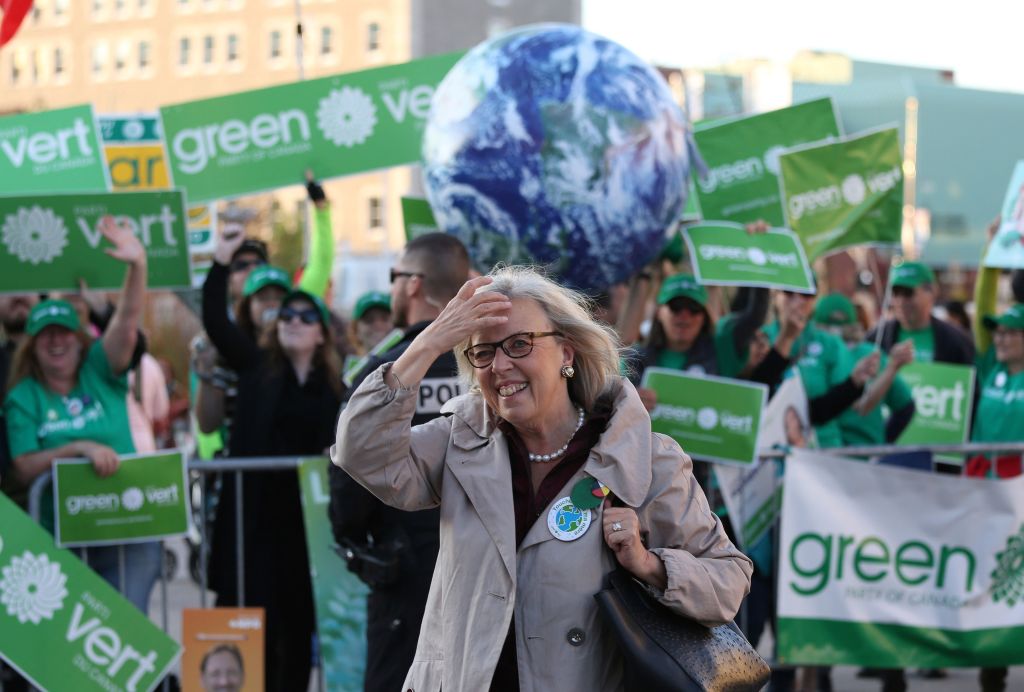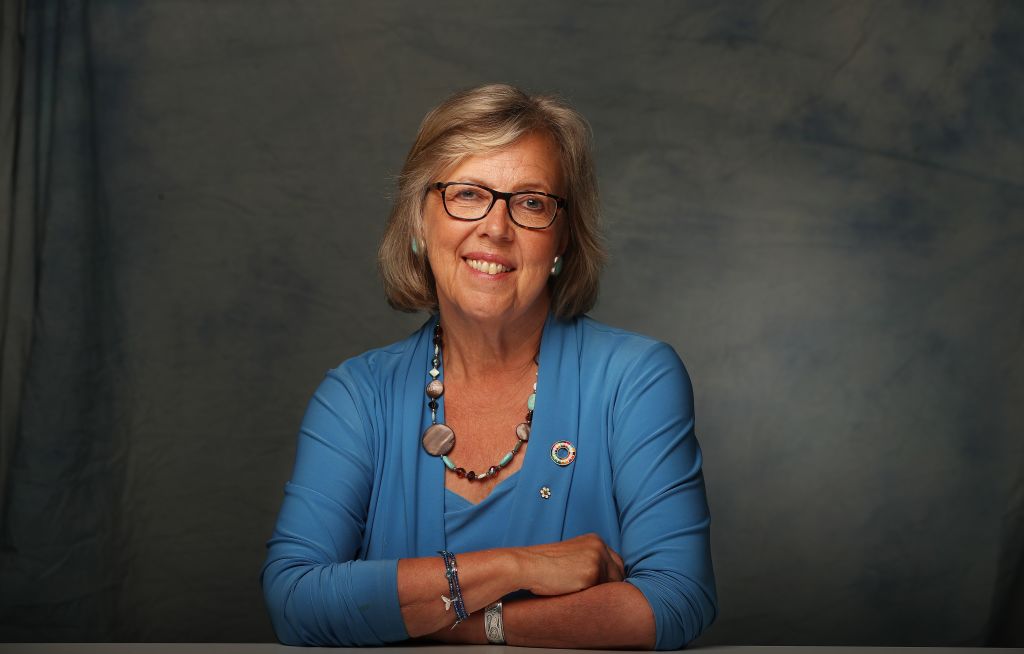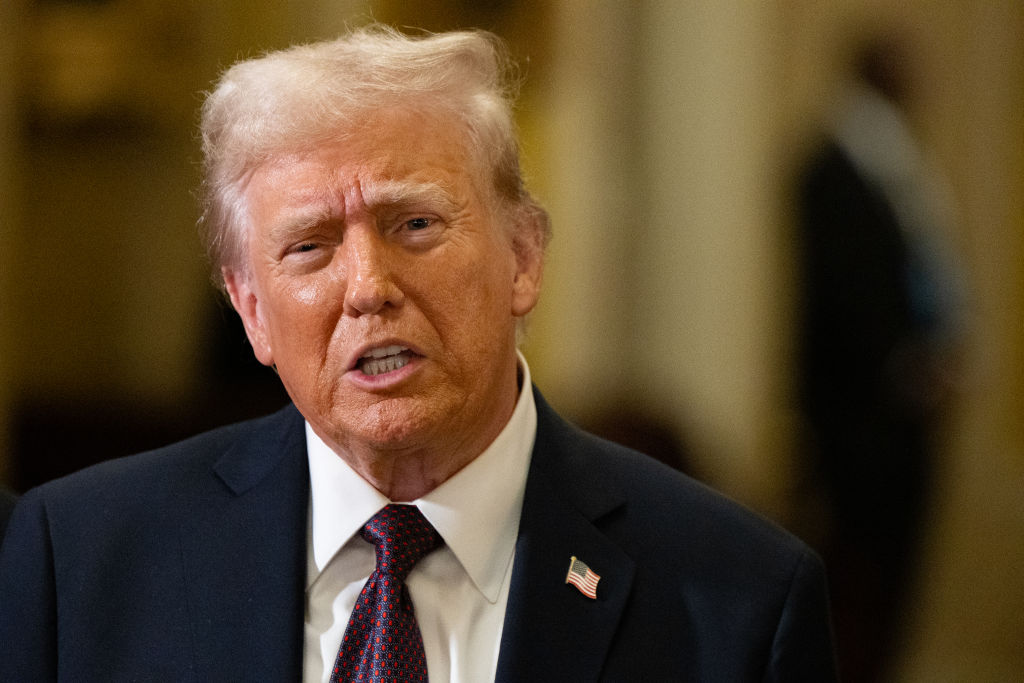Could California, Oregon, and Washington Join Canada?

Source: Chris So / Getty
Could California, Oregon, and Washington Join Canada?
In a response to President-elect Donald Trump’s repeated suggestions that Canada should become the 51st U.S. state, Elizabeth May, leader of Canada’s Green Party, made an enticing offer that could change the political landscape on the North American continent.
Speaking last week in Ottawa, May threw a playful yet serious counterproposal to the three liberal West Coast states—California, Oregon, and Washington. Instead of Canada joining the U.S., she suggested these states might be better off joining Canada.
“Hey, Donald, have we got a deal for you?”
May said, addressing Trump’s ongoing rhetoric.
“You think we want to be the 51st state? How about California, Oregon, and Washington becoming our 11th province?”
Her pitch was clear: Universal health care and stricter gun laws—two policies that she believes would appeal to residents of these liberal-leaning states, many of whom are critical of the policies and political climate in the U.S.

Source: DAVE CHAN / Getty
May’s proposal comes at a time of rising tensions between the U.S. and Canada, largely driven by Trump’s controversial remarks about tariffs, economic policies, and Canada’s political standing.
Since being reelected, Trump has repeatedly floated the idea of Canada joining the U.S. in what many have seen as a joke—but in recent weeks, he’s made it clear he’s more serious than ever.
“Canada is subsidized to the tune of $200 billion a year,” Trump said in a press conference, alluding to Canada’s reliance on the U.S. military and its perceived economic burden on America. “It’s very unfair,” Trump lamented, hinting at the tariffs he plans to impose on both Canada and Mexico in the coming months.
In response, Canadian leaders have firmly rejected the idea of joining the U.S., with Prime Minister Justin Trudeau stating, “There isn’t a snowball’s chance in hell that Canada would become part of the United States.” Despite the rejection, Trump’s rhetoric continued to escalate, especially after Trudeau’s recent resignation, which Trump seemingly used as a stepping stone to intensify his calls for statehood.

Source: ADRIAN WYLD / Getty
May’s offer comes with some serious perks.
“This is what you get: free health care. Universal free health care,” she said, addressing the West Coast states. “No more one-year-olds who suddenly fall off the Medicaid list, and their parents are scrambling to fundraise for a doctor’s visit.”
Canada’s universal healthcare system is one of the country’s most beloved policies, and May made sure to highlight it as a selling point.
Additionally, she referenced Canada’s strict gun laws, a stark contrast to the ongoing debates in the U.S. over gun control.

Source: Steve Russell / Getty
With California, Oregon, and Washington all known for their liberal stances on healthcare, environmental issues, and gun control, May’s pitch seemed tailored to the values of voters in these regions.
In fact, many in these states have long felt at odds with federal policies—particularly those that limit access to healthcare and fail to curb gun violence.
While May’s proposal was direct and bold, Ontario Premier Doug Ford took a more humorous approach to the situation.
Ford offered his own counteroffer to Trump:
“How about if we buy Alaska and throw in Minnesota and Minneapolis at the same time?”
Ford’s comments, made in jest, reflect the frustration many Canadian politicians feel over Trump’s ongoing rhetoric. But his playful response highlighted the fact that Canadians have been consistently resistant to the idea of merging with the U.S. and are proud of their sovereignty.

Source: Anadolu / Getty
Despite the pushback, Trump has remained resolute.
“Many people in Canada LOVE being the 51st state,”
Trump posted on Truth Social after Trudeau’s resignation.
“If Canada merged with the U.S., there would be no tariffs, taxes would go way down, and they would be totally secure from the threat of Russian and Chinese ships surrounding them.”
This rhetoric has drawn criticism from Canadian officials, who continue to emphasize the strength of their country’s economy and political independence.
Minister of Foreign Affairs Mélanie Joly countered Trump’s assertions, saying,
“President-elect Trump’s comments show a complete lack of understanding of what makes Canada a strong country. Our economy is strong. Our people are strong. We will never back down in the face of threats.”
RELATED: Trump Announces Blanket Tariffs For Canada, Mexico, China









